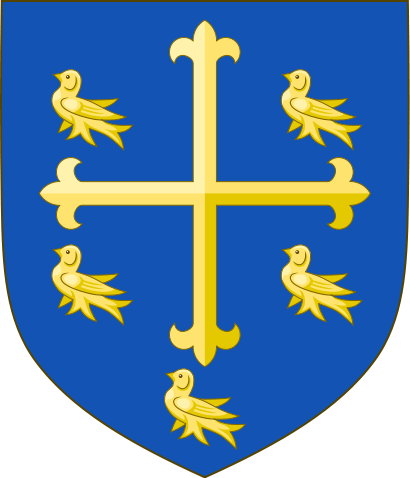Howard Family
Sola Virtus Invicta (Only Virtue Unconquered)
Chapter 13 : Back to the Tower
As Henry VIII sank into illness and infirmity in 1546, the factions in his Council were jockeying for power in the reign to come. Prince Edward was only nine years old, and there would need to be a regency of some sort. The Reformist faction was led by Edward's uncle, Edward Seymour, Earl of Hertford, together with Archbishop Cranmer; John Dudley, Viscount Lisle; William Parr, Marquis of Northampton, and William Paget.
On the Traditionalist side the key players were the Duke of Norfolk and Bishop Gardiner. Surrey, although he had been reformist in religion, like his sister Mary who was very radical, seemed to be moving back to a more conservative position. He was certainly keen to see his father as Regent for a young king, rather than the hated Earl of Hertford.
The Reformers, eager to get their hands on the levers of power, worked hard during 1547 to discredit their opponents. The question of Surrey's Coat of Arms was brought up, and, in a particularly sneaky manoeuvre, in which the use of Arms to which Surrey was perfectly entitled were made to seem evidence of treason, he and his father were sent to the Tower of London.

The arms in question were those of Edward the Confessor. Surrey, as a descendant of Edward I was, according to heraldic principles, entitled to quarter them with his other armorial achievements. The King of Arms had not forbidden their use, although he claimed to have discouraged it.
Additional evidence was brought forward that Surrey had advised his sister Mary to become Henry VIII's mistress, in order to advance the family. Mary had vehemently rejected such advice (if it were serious, and not just a sarcastic remark) but her relationship with her brother deteriorated, and her evidence was used against him.
The evidence brought against father and son was circumstantial tittle-tattle. Nevertheless, at a juncture when Henry VIII was increasingly paranoid about treason, and about his son's safety, this was enough to condemn both Norfolk and Surrey.
Surrey was executed some days before Henry's own death. Norfolk was saved by the King's death on 28 th January, 1547.
He remained in the Tower and there we shall leave him languishing, a seventy-four year old, who had served his country with distinction, whilst sacrificing his nieces to terrible deaths.
